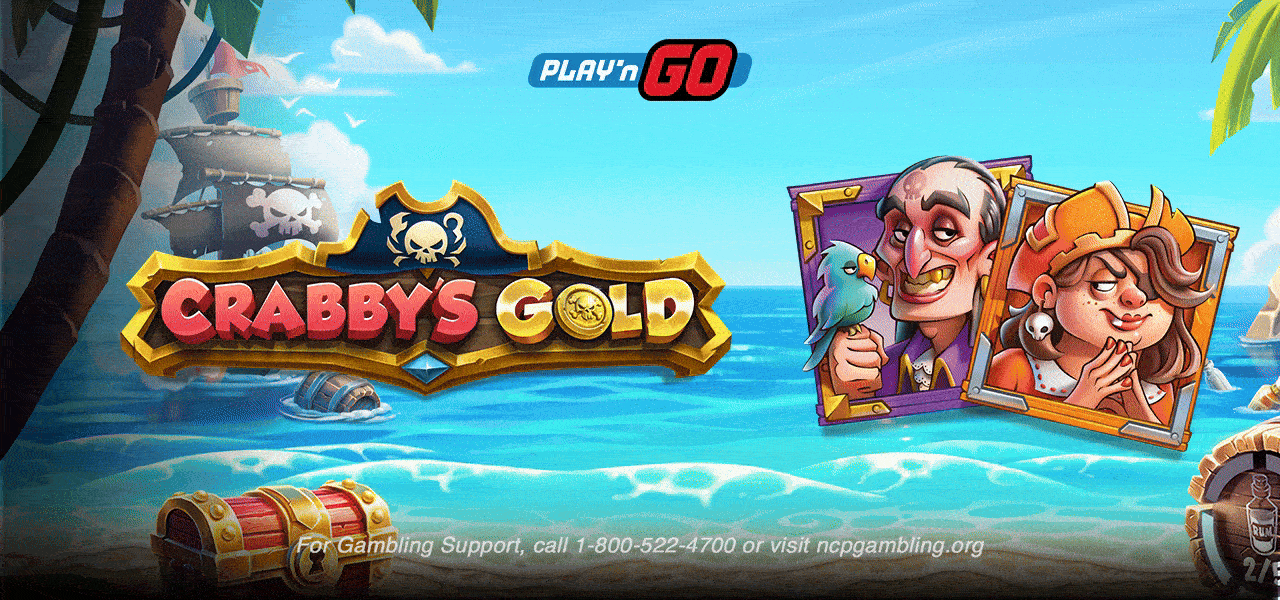Interviews
Atlas-IAC is ready to engage Latin American audiences
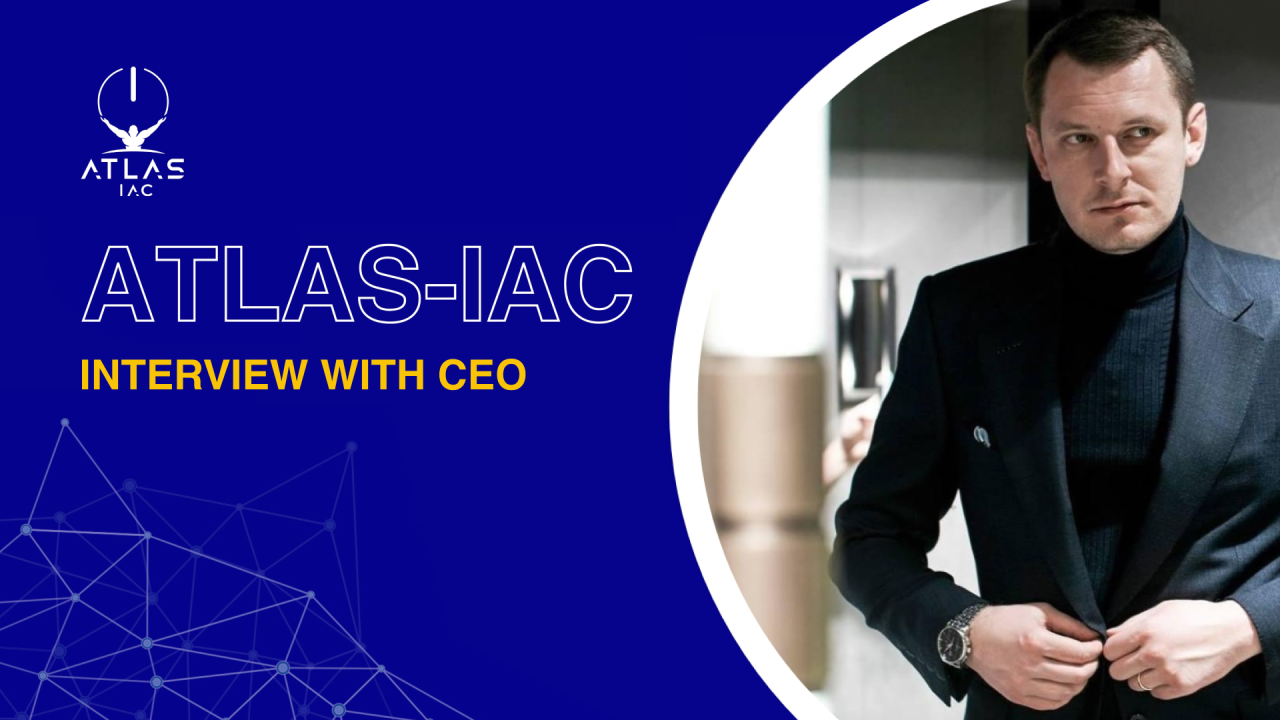
Latin America brings a huge opportunity for brands to make an instant impact once regulatory approvals are given the go-ahead. The Brazilian iGaming Summit is a key event in the calendar and brings together the industry’s main players and CEO Maxim Slobodyanyuk tells us about the company’s growth plans in the region.
So, are Atlas-IAC all set for SiGMA Americas?
We’re thrilled to be at the SiGMA Americas summit in association with the Brazilian iGaming Summit (BiS). Being here for the full four days, it will no doubt be a fantastic event at the Transamerica Expo Center.
With 28 operators in Brazil already deploying our market-leading platform, we’ve really established ourselves as one of the country’s most popular providers, as well as a regional industry leader across LatAm in delivering tailored end-to-end solutions.
We’re exhibiting our next-generation platform at stand E20, which showcases some of the best technology on the market– reflecting our dedicated commitment to shaping the future of the Brazilian iGaming industry.
Why does this venue hold such an attraction with operators, suppliers and affiliates?
SiGMA Americas brings together thousands of attendees from across the iGaming sector, including sportsbooks, casino operators, developers, bettors, and affiliates.
I have no doubt that it will be a key event for all brands as the Brazilian sports betting, lottery and iGaming sectors inches towards regulation.
Of course, the Transamerica Expo Center is a perfect venue and is able to accommodate 100+ lectures by key thought leaders in the sector, amounting to over 70 hours of high-level content with representatives from 50+ countries.
Which breakthrough technology do you feel will be the big talking point here?
I believe this is finally the moment when Artificial Intelligence (AI) across trading, marketing tools, and data collection finally align for progressively effective modes of personalisation.
If your system truly knows and understands your customer from the start of their journey, a frictionless, personalised experience will be within an operators’ grasp.
In fact, I think high-volume AI systems pose a lot of questions as marketing departments struggle to create cut-through campaigns at scale.
After all, if intelligence is just a matter of data-processing, the gap between the human mind and the functionality and capability of AI is just increasing by orders of magnitude.
At Atlas-IAC, we’ve fostered our reputation around harnessing such automation, building the most advanced, responsive platform that understands the workflow before trying to make it more efficient.
Tell us how Atlas-IAC has expanded in recent history?
Atlas-IAC was founded with the vision of modernising the global sports betting industry. It’s long been clear that manual trading teams would be replaced with data feeds and algorithmic pricing models.
So, with this in mind, the Atlas-IAC founders set out to build a modern, modular and scalable sports betting platform that could replace the legacy sports betting platforms that are still widely used. This has been the key to our impressive expansion.
In total, we have now expanded our operations to serve four continents, with more than 50 operators deploying our market-leading platform and sportsbook across LatAm, Europe, Africa and Asia.
Given that we’re led by a highly experienced management team whose members have worked for some of the leading companies in the industry, we’ve been able to offer something truly different to our competition.
Is there a particular geographic focus of the company?
Emerging markets in LatAm are definitely at the forefront of our minds. The region is incredibly dynamic and growing fast, so it’s a great place for us to be part of.
To put our success here into perspective – we now have multiple inspiring case studies that showcase brands being launched very fast with delivery / integration time taking only two days with Atlas-IAC, making us a tech supplier that can offer something truly different.
In line with that, I have no doubt we’ll be continuing to make our mark in LatAm, with Peru soon to be regulated, as well as further building on our established footprint in Colombia. We feel we have profiled the market both deeply and effectively, and the continent will no doubt be a mainstay of our focus over the coming years.
Looking at Brazil, above all, can you share some of that insight and speak more to the specifics there?
The size of the market is even larger than most commentators have estimated. Looking at information that is publicly available – the major regional operators are already processing $100s of millions in GGR.
To do that, you need to deliver exceptional, hyper-personalised experiences to players, as well as ensuring instant cashout to quickly instil confidence in your brand.
The regulatory framework in place is also conducive to growth, with Brazil’s Ministry of Finance confirming that the sports betting tax rate will be set at 16% of GGR, with 2.5% of the taxes tagged to combat match-fixing and AML.
As for payments, the most popular method is Pix, an instant, frictionless, low-cost mobile payments system developed by the Central Bank of Brazil and launched in late 2020. More generally, this has led to a boost in all forms of e-commerce, not limited to gambling.
One blocker we’re seeing is on payment costs – as gambling-related cash cannot be held in Brazilian bank accounts. The FX spreads on conversion of deposits and withdrawals are high at this point in time, however, this will likely drop to less than 10% post-regulation and will provide some offset to the potential loss of casino.
Which other markets are currently taking your eye in LatAm / South America?
Peru also appeals to us as things stand. Its lenient regulatory frameworks certainly recommends that it should form part of any concerted South American / LatAm regional expansion.
The market is currently fragmented which is also beneficial for a highly agile provider like us. Only those with a licence (which must be renewed annually) will be permitted to advertise or sponsor sports teams in Peru, and there’s a 12% tax on all net winnings.
More broadly, this continent is certainly a rapidly evolving ecosystem where no market positions can be taken for granted, especially if you’re running on outmoded legacy platforms.
Emerging markets are very fragmented. There was a time when six or seven markets would be an attractive proposition for international presence for a global betting brand.
However, what we’ve seen in the modern era is the emergence of lots of national brands, take Caliente with a staggering 75% market share in Mexico, who are not globally-centralised operators.
Remember, every country has their own form of regulation so what matters is knowing the customer, meeting them within their respective content preferences and providing familiarity with a host of localisation techniques.
What are the obstacles to success in LatAm?
LatAm is a football-obsessed territory, and so football must be an important component within your product suite. So, almost without exception, you’re selling the same football-powered product across the continent. However, to succeed, you need to ensure it is complemented and supported by local preferences which can range from mainstream to more localised offerings.
Player habits are also very different. Landing big wins from small stakes has proven to be (and will continue to be popular) in all emerging markets, but these types of bets are great for the operator’s margin, and there’s still a real appetite for these wagers.
More broadly, rapid access to funds, whether it be deposits to withdrawals, is also paramount to making your brand the preferred wallet of any customer.
Customer trust in any operator really hinges on their capacity to pay out in timely fashion, especially with customers heavily favouring the BetBuilder or parlay models. In many cases, you’ll also need to customize your payment methods country-by-country with different requirements.
Localised customer support is also imperative, too. For example, Brazilian Portuguese fluency alone wouldn’t be a plus-point, you need the regional varieties and dialects. This will breed familiarity, trust, and a personalized feel for the users, who are seeking seamless journeys and experiences.
Last but not least – pay attention to your UX. It needs to be familiar to players and easy to navigate, that uniformity will be key if you want to take on the leaders in any given territory.
Interviews
Review Fatigue Is Real: How to Make Casino Comparisons Clear, Honest, and Human

Sebastian Jarosch is the founder of Mithrillium Media Ltd, and a very famous figure in the iGaming industry. His contributions to the market have been immensely influential. Jarosch has overlooked several projects relating to the online gambling market, most notably those involving affiliates. Because of his past works, we believe he is uniquely qualified to address the topic of Review Fatigue, that seem to be plaguing the industry right now.
Actions speak louder than words. And Jarosch’s actions have earned him several of the most notable industry awards. Among the most notable are the Casinomeister 2020 Awards for Best Casino Group, the AskGamblers Awards for Best Partner in 2021, and the Affpapa Awards Affiliate Programme of the Year 2022.
Interview Questions:
What is “review fatigue,” and why do you think it’s becoming a growing issue in the iGaming space?
Review fatigue happens when players are faced with repetitive, overly long, or generic content. With so many casinos offering similar bonuses, games, and licensing, users quickly lose interest if every review sounds the same. Many reviews lack real insight and simply list features without context, often sounding too good to be true. As a result, players tend to skim or move on entirely, especially if they’ve already seen the same structure and wording on multiple other sites.
How can overly technical or overly promotional content alienate users instead of helping them?
When content is too technical, it can confuse or intimidate newcomers. Ideally content is educational and written with the player in mind. On the flip side, a sales pitch feels dishonest, especially to experienced players who know what to look for. Users are looking for clarity and guidance, not marketing sugar coated casinos. If a review sounds like it’s trying to sell rather than help, it erodes trust immediately. Players want transparency, real pros and cons, not just buzzwords.
What are the most important things players want to see in a casino comparison, and what can we safely leave out?
Players want to know the promotions, payment methods, withdrawal speeds, licensing, game variety, and reliability of a casino. They also care about things like support quality, KYC, ownership, RTPs, and real player feedback. What they don’t want is generic content that could apply to any casino and offers no real value. Sites like Casino-Groups help players pick the right casinos based on individual preferences.
How do you balance clarity with completeness when writing or designing reviews?
It’s all about prioritizing information and guiding the reader. We aim to answer the most important user questions right at the beginning, often using summary tables to make things easier to digest. More detailed information comes later for those who want to dive deeper. It’s important to avoid walls of text and explain complex terms in plain language. The goal is to give users exactly what they need to know, without bombarding them with unnecessary information.
Do players trust shorter, more digestible content more than long-form reviews today? Why or why not
Shorter content tends to convert better because users find what they’re looking for quickly, without digging through long paragraphs full of filler. Dense, meaningful content with no waste often performs best. A short, clear, and well-structured review can build more trust than a long one filled with fluff. That said, some players do enjoy longer reviews, especially when they’re broken up with visuals, clear sections, and genuinely useful insights.
What role does tone of voice play in making reviews feel more human and less “salesy”?
A review should feel like it’s written by a real person who’s an expert in the field, not by ChatGPT or a salesperson. We use conversational language where possible and speak directly to the user. If something’s bad or a bonus is just average, it needs to be mentioned. That kind of honesty builds far more credibility than flashy design or empty buzzwords.
How do you verify and present information (e.g., licensing, terms, payment speed) in a way that’s both accurate and user-friendly?
We manually verify everything by signing up, testing support, and reading the fine print. We also check licenses through official registries and monitor user feedback on watchdog sites. To present the information clearly, we use tables, lists, screenshots, and both internal and external links to relevant pages. All our reviews follow a consistent format so players know what to expect and can easily find the details they need.
Have you experimented with visual elements like comparison tables, badges, or rating meters to reduce cognitive load?
Pictures speak a thousand words and help break up content into smaller, more digestible sections, reducing review fatigue. We use comparison tables for things like bonus terms, game selection, and payment methods. Every review includes a rating, and we apply badges to highlight our top casinos. This makes it easier for users to compare options at a glance and make smarter decisions with less effort.
What strategies do you use to keep review formats consistent while still personalizing the experience for different user types?
We follow a consistent structure that works well for both SEO and conversions. However, if a specific area needs emphasis or additional context, we’re happy to deviate from our standard format to ensure topical completeness. Some casinos offer unique features that deserve extra attention, and in those cases, we’ll add dedicated sections. The framework is consistent, but we stay flexible where it counts.
Looking ahead, how do you think casino reviews will evolve to meet changing user expectations and attention spans?
We’ll see more interactivity, personalization, and smarter use of data. Reviews could adapt in real time based on user preferences, highlighting crypto options for one user and game selection for another. AI chatbots may help users find the best match and answer questions about a casino instantly. Integration with platforms like Discord or Telegram where players can exchange themselves could also make reviews feel more social and trustworthy. Reviews need to become sharper, more authentic, and more genuinely helpful than ever before.
Interviews
Curated for impact: How Infingame is redefining games aggregation
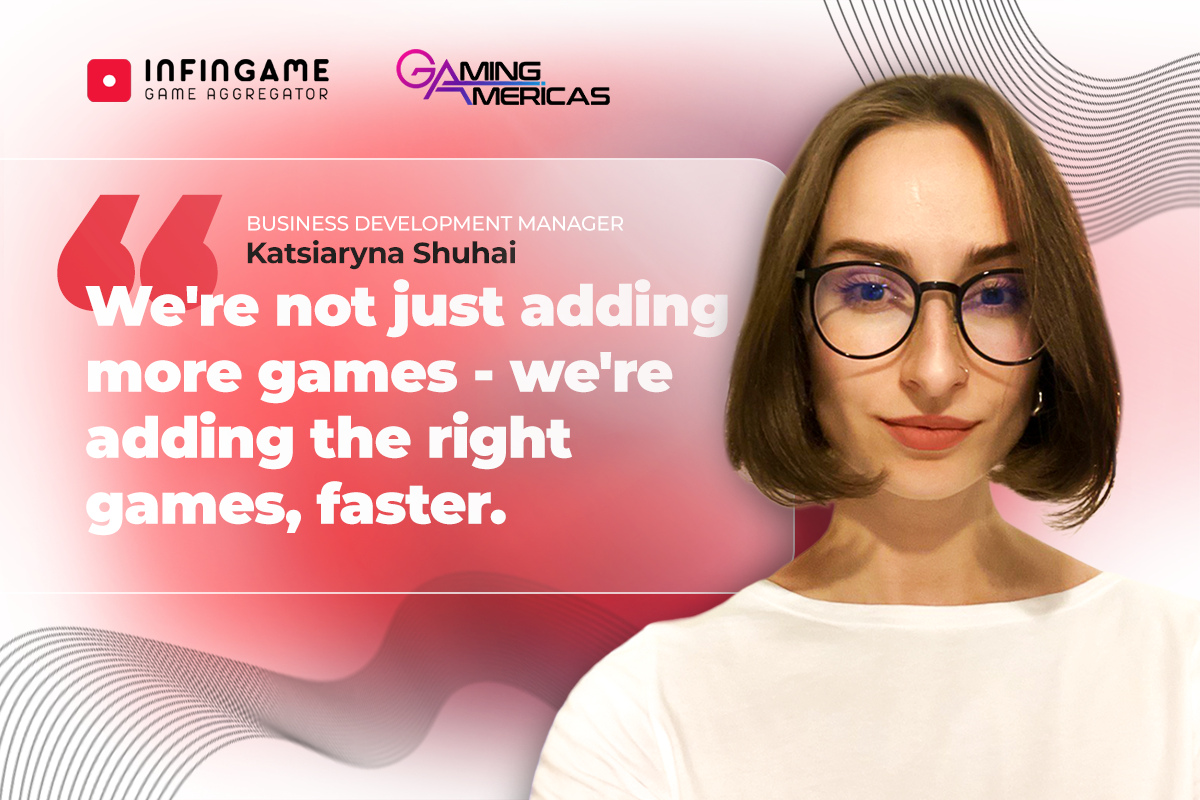
In an exclusive with Gaming Americas, Katsiaryna Shuhai, Business Development Manager at Infingame, explores how the supplier’s curated approach to casino content is redefining the games aggregation space.
Katsiaryna, can you begin by introducing yourself – what does your role at Infingame entail?
As the Business Development Manager at Infingame, I lead strategic partnerships and integrations with game studios and content providers. My role focuses on identifying standout gaming content that fits our platform’s vision, negotiating collaboration terms, and ensuring smooth onboarding.
With a background in advertising, I bring a strong focus on relationship-building, open communication and a personalised approach to each partner. I believe that genuine connections and tailored solutions are key to driving successful, long-term collaborations.
Infingame has recently integrated with innovative game studios, including TaDa Gaming and Popiplay. What factors influenced your decision to partner with these two studios in particular? How have they impacted your partners’ engagement and retention across Latin America?
Our decision to partner with TaDa Gaming and Popiplay was driven by each studio’s ability to deliver innovative, high-performing content that resonates with players across our key markets, including Latin America. Popiplay offers energetic, entertainment-led slots, while TaDa brings a diverse mix of popular formats such as crash and fishing games.
We’re confident that these integrations will help our partners boost player engagement and retention, particularly in Brazil, Mexico, and Colombia. Both studios align perfectly with our goal of delivering meaningful and localised content.
With 16,000+ games from 200+ providers available via Infingame’s platform, how do you ensure that new titles don’t just add volume but deliver real value to your operators?
While our platform boasts a vast library of games, we prioritise quality over quantity. It’s important to deliver content that we know players will enjoy, rather than just sheer volume.
When adding new content to our platform, each new title undergoes a rigorous evaluation process to ensure it meets our standards for player engagement, technical performance and market relevance. By focusing on curated content that aligns with operator needs and player preferences, we ensure that every addition enhances the overall value proposition for our partners.
Infingame is now taking a much more curated approach to game studio integrations. What sparked this change in strategy?
The shift towards a more curated approach stems from our commitment to delivering tailored, high-quality content that meets the specific needs of our operators and players. We want to make sure that the games on our platform are suited to local player behaviours, technical requirements and localised to each individual market.
As the iGaming industry continues to evolve, and more markets begin to embrace gambling regulation, it’s essential to focus on partnerships that offer strategic value, ensuring that each integration contributes meaningfully to our platform’s objectives and enhances the user experience.
With more selective onboarding of game providers, how does Infingame evaluate which studios to integrate with? What criteria do you consider?
We evaluate potential game studio partners using a rigorous set of criteria to ensure quality and compatibility with the Infingame platform. Key factors include the uniqueness and quality of game content, with an emphasis on standout mechanics, visuals and immersive experiences. Technical reliability is absolutely crucial – we assess API stability, integration efficiency, and overall tech performance to guarantee seamless operations.
We also consider the studio’s reputation and regulatory compliance across our target markets, ensuring that they meet legal standards and industry expectations. A strong track record of player engagement and retention is another important indicator of long-term value.
Additionally, we look for a clear commitment to innovation, including new formats or features that enhance the player experience. This selective onboarding approach helps us maintain a diverse, high-performing game portfolio that supports our operator partners and meets the evolving demands of players worldwide.
How will this refined integration strategy impact your existing and prospective partners, particularly in terms of content diversity and speed to market?
This refined integration strategy empowers us to deliver greater value to both existing and prospective partners by emphasising quality over quantity. By curating a portfolio of high-performing, innovative content, we ensure that our partners can offer games that genuinely resonate with their target audiences and stand out in a crowded marketplace.
Our focus on onboarding only top-tier, reliable studios means partners benefit from diverse and engaging content that drives player retention and growth. Additionally, by streamlining technical integration and reducing operational friction, we can accelerate speed to market, enabling our partners to launch new titles more efficiently and capitalise on emerging trends.
This agility is key to maintaining a competitive edge. Ultimately, our strategy is designed to foster long-term success for our partners by delivering not just more games – but the right games, faster.
Finally, what’s next for Infingame? Are there any upcoming partnerships, features, or innovations that you can give us a sneak peek of?
Looking ahead, Infingame is committed to expanding its portfolio through strategic partnerships with studios that deliver innovative, high-impact content. Our focus remains on curating games that not only entertain but also enhance player retention.
At the same time, we’re investing in new technologies and platform features – such as advanced tournament mechanics, real-time engagement tools, and personalised player experiences – to help our partners stay ahead of industry trends.
These enhancements are designed to drive deeper engagement, increase revenue potential, and strengthen the overall value we bring to our operator network as a trusted, forward-thinking iGaming aggregator.
Interviews
Sweepstakes’ next chapter: Exploring global potential, US regulations and player preferences

Sweepstake casinos have seemingly come out of nowhere to dominate the discourse across the US. We spoke to a number of providers who have entered the space to see what their expectations are, and how far the sweeps vertical can go alongside the traditional casino experience.
With/ Rory Kimber, Commercial Director at LuckyStreak, Daniel Mitton, Chief Business Development Officer at Sweepium and Allan Turner CEO at Cogniplay
What games are best received by sweepstake customers? Traditional games or more gamified titles such as boosted multipliers or big jackpot games?
RK: I would say that for live dealer, it’s a traditional genre of games that are popular with sweepstakes casinos players, and as we’ve seen, particularly Blackjack. US players are more likely to play in land-based casinos, so the authentic and human aspects of live dealer games naturally resonate well.
We’ve seen a big uptake of all our core games, which was gratifying, but that’s not to say the gamification aspect doesn’t play a role, as our leaderboards and tournaments are popular and very effective, particularly with this segment of players that are looking for more than just gameplay.
In slots it seems to depend on the brand; some operators bring in players who want traditional maths and features but an increasing number are seeing strong performance from new games with unique features that never lose your attention for a second. The providers that create games with sweepstakes players in mind will be more likely to see success.
AT: What we’re seeing is that players seem to lean towards games that feel quite traditional and familiar to them in most cases. Although, they often come with features like fixed jackpots that scale with your bet, which adds a bit more excitement to their playing experience. I would say that users are gradually getting more experimental over time, and as the prevalence of non-US based games providers increases on sweeps sites, with them applying the sweeps mechanic to their games, innovation is certainly speeding up, and this is being embraced by users.
DM: What we’re seeing from the U.S. audience is a clear preference for high-energy, feature-rich games. Titles that include interactive mechanics, boosted multipliers, or big-event style moments consistently drive the most engagement. These kinds of experiences are more immersive, more social and they give players a sense of momentum and excitement.
That said, traditional slots and classic-style games still play an important role especially as an entry point for new users. Over time, players really respond to content that feels fresh, dynamic and packed with surprises. It’s not just about spinning, it’s about participating in an entertainment experience.
Do you tweak titles to be unique to sweepstake casinos, or does the same product respond well on traditional online casinos and social?
AT: Right now, we mostly work with studios to handle any tweaks, though in general, the classic versions of games tend to perform well across different platforms. One area that we do see more interest in the sweeps market, is in things like fishing and shooting-style games, which have a real captive audience in the US, due to the history of fish table games in the market. One tweak that a lot of brands are employing is asking their game providers to create branded games for them, which in a lot of cases tends to perform very well, particularly for the more well-known brands.
RK: We tweak our games to be compliant first and foremost, but in terms of the actual gameplay in the Live games, it’s pretty much the same.
For social casinos in particular, there are necessary changes because the number of coins people win can be enormous, so that requires some thought too. For slots, we’ve seen our providers make sure the fastest gameplay settings are defaulted, along with all their features enabled that some regulated markets don’t allow, but really a lot of the time the gameplay experience is comparable.
That being said, providers who build sweepstakes and social titles from the ground up do go about things in a different way and have those players front of mind throughout the development process and that has been successful.
DM: We’ve found that the core product translates well across both traditional online and sweepstakes platforms especially when it comes to high-quality, well-designed games. The fundamentals of engaging gameplay, strong visuals and smooth mechanics resonate just as strongly with sweepstakes players as they do in real-money or social environments.
That said, there are subtle but important differences in how players engage. In sweepstakes, we tend to see more interest in longer session times, progress-based features and community-driven elements, which slightly shifts how we position and present the content. For example, boosted multipliers and timed events do especially well in the sweeps format because they align with that desire for ongoing entertainment and personal achievement.
Ultimately, a strong core game can succeed in both spaces. It’s about making the right adjustments to match player expectations keeping the experience fresh and engaging.
Do you think sweeps will become as popular throughout Europe as they are in the US?
RK: I think the elephant in the room is regulation. Sweepstakes are a popular product but are inextricably linked to what local regulation allows. For European markets where the real money industry has experienced stringent regulations I believe there is a space for sweepstakes casinos to come in and give players an experience more comparable to what they enjoyed a few years ago. I’m no expert on the legalities of sweeps in each of these jurisdictions but I’d be very surprised if they don’t gain a foothold in the European market somewhere.
DM: There’s definitely potential but the dynamics are different. In the U.S., the appeal of sweepstakes is closely tied to accessibility and the ability to engage across most of the country, on a state by state basis. That’s given the model a unique edge in the U.S. market.
In Europe, where the digital entertainment and gaming landscape is already well-established, the path might look different but I do think there’s room for growth, especially in areas where lightweight, low-barrier gaming experiences are in demand. The key will be localization, cultural relevance and regulatory framework. The model works best when it speaks directly to the habits and preferences of each market.
AT: Personally, I think it’s all about how market conditions change in Europe in the coming years, particularly with regards to regulation. In the US sweeps has become particularly popular because it has filled the void left by the fact there are still so few regulated states for real-money gaming. Does this void exist in Europe in the same way? Well, no, not in most countries, not now anyway. However, should regulators continue their current path to over-regulation, who knows how that will end up. There are already several sweeps’ sites operating in a few European markets, that are already quite over-regulated, and that trend could well continue apace.
Sweepstake casinos have shot to popularity in a swift time frame. Where do you think they’ll be in 5 years’ time?
AT: This is the billion-dollar question on everyone’s lips right now, with regards to sweeps, it’s certainly a question we get asked a lot! Obviously, there is a lot of noise about sweeps at the moment, and a huge number of variables to consider, and its’ anyone’s guess how it will all turn out in the end. Ultimately there is a huge demand in the US for online gaming products, and it seems logical, as part of free market economic theory that unless regulated gaming can progress much more quickly than it is now.
RK: Well again the obvious answer is what US regulators do – both in terms of the speed of opening up new states to online casinos, to how they respond to the growth of the sweepstakes sector. If things carry on largely the same I can see sweepstakes being at a similar level in terms of market share, perhaps even growing as more providers and new operators enter the market and improve the product offering.
I think overall it will be a balance, as certain areas in the US close off sweepstakes, other markets round the world will open up, so I see a steady path ahead on a global level – although perhaps not a repeat of the explosion we’ve just witnessed. Social is a different kettle of fish: I believe it will continue to grow rapidly and become linked in more interesting ways with the acquisition activities and loyalty programmes of real money gambling companies, whether they be land based or online.
DM: Looking five years ahead, I see sweepstakes platforms evolving into full-scale entertainment hubs. The future isn’t just about gameplay, it’s about creating connected, content-rich environments that bring together digital experiences, creator-driven events and community engagement.
We’re building platforms where people don’t just come to play, they come to interact, explore and be part of a larger digital culture. That could mean live-hosted experiences, interactive tournaments or even crossovers with music, sports or media. The sweepstakes format is incredibly flexible and that gives us the ability to adapt fast and scale with the culture. In short, we’re not just part of the digital entertainment world, we’re helping shape where it’s going next.
-
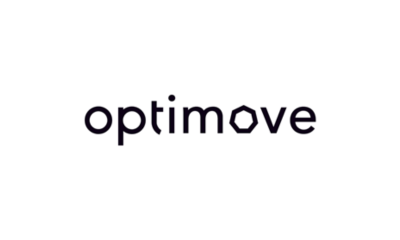
 Latest News7 days ago
Latest News7 days agoOptimove and EveryMatrix Launch Real-Time Integration to Power Smarter Marketing for iGaming Operators
-
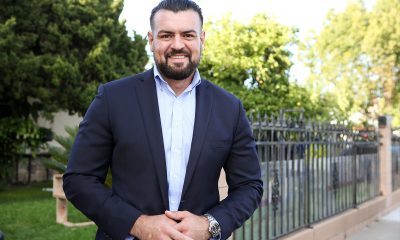
 Compliance Updates7 days ago
Compliance Updates7 days agoNew Bill in California Could End Online Sweepstakes Gaming
-

 Latest News7 days ago
Latest News7 days agoSpotlight 29 Casino and Tortoise Rock Casino to Launch Konami Gaming’s SYNKROS Casino Management System
-

 Central America7 days ago
Central America7 days ago21VIRAL Boosts Latin American Reach Through Strategic Partnership with Virtualsoft
-

 eSports7 days ago
eSports7 days agoEsportes da Sorte celebrates Brazilian culture with Parintins and São João Sponsorships
-
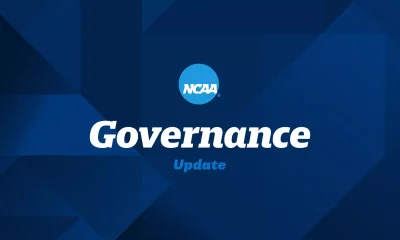
 Compliance Updates7 days ago
Compliance Updates7 days agoNew Initiative from DI Council Aims to Enable Betting on Professional Sports
-
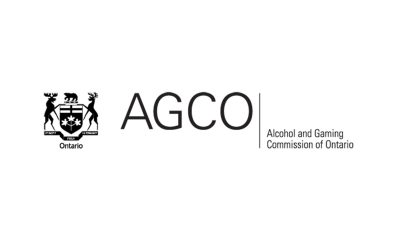
 Canada4 days ago
Canada4 days agoAGCO Fines Great Canadian Casino Resort Toronto $350,000 for Serious Regulatory Violations Linked to Impromptu After-Party on Gaming Floor
-

 Latest News4 days ago
Latest News4 days agoEDGE Boost Named Preferred Payment Method for World Series of Poker Event Series


